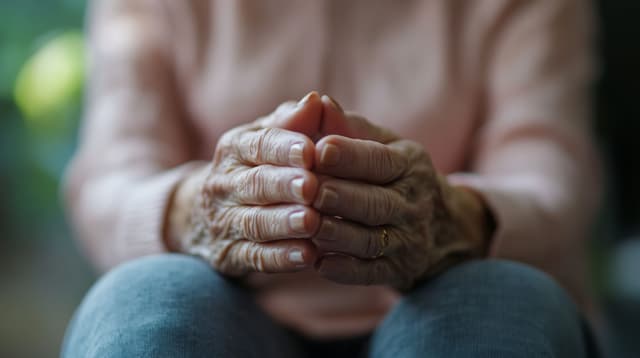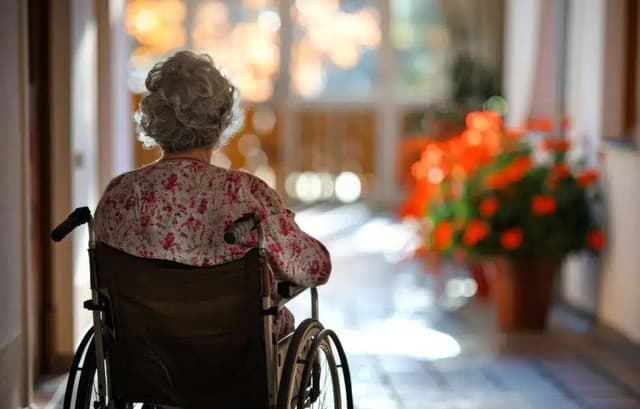A lawsuit can be a new and frightening experience, especially when you don't know what to expect. We have done our best to answer the most common questions new clients initially have. If you do not find the answer to your questions here, we will be able to answer any questions when you contact us. You can also review the "Lifecycle of a Lawsuit" (keep reading below) to get a better picture of what to expect during the course of your case.
One of the first questions people want to know is do I have a case? We would love to be able to give you an answer immediately. However, in order to give you a definitive answer, we need to evaluate your case. Oftentimes we are able to determine the strengths and weaknesses of a case based on our initial phone call. During that call we will ask you specific questions about your case. Based on the vast number of cases we have handled, we have almost certainly handled many cases with facts almost identical to yours. To be safe, I would plan on that initial call lasting somewhere between 45 minutes and an hour.
We evaluate each case separately and assign a team based on the specific needs of the case. Every case will be assigned a paralegal who will be the primary contact. A paralegal is a professional who serves multiple roles, but they are essentially the primary investigator on your case. They are often times working with witnesses, compiling documents, searching records for information


There is no upfront charge for our services unless there is a successful recovery on your behalf. We recognize that unlike very large corporations, the average person does not have the ability to pay for a lawyer or pay the legal costs associated with a lengthy court battle. In your case, however, we will work on what is called a contingency fee. That means that our fee is contingent on us obtaining a settlement or verdict on your behalf. If we are successful in winning your case either through a settlement or trial, we will receive 40% of the total verdict or settlement as payment for our legal services. It also means that the costs of the lawsuit are advanced by the firm and paid back from the settlement or verdict. In the rare event that we are unsuccessful in your case, we do not charge the client for our services or the expenses of litigation. To put this into perspective, by the time we finish the trial, our team often has devoted more than 3,000 hours in your case and potentially spent more than $100,000 to prove your case. If we are unable to successfully prove your case, we absorb those expenses and never ask the client to pay us anything. That is how confident we are in the services we provide. That is also why we are so selective in taking the cases that we do.
In a typical lawsuit, there are various times where you will be asked to be more involved than at other times. Early in the case, client involvement is key. This is the time when we gather the initial building blocks of the case. These building blocks include identifying the nursing homes and medical facilities who provided care, critical facts, names of witnesses, and any other information needed to perform a full-scale investigation. Other times when your involvement is necessary is during your deposition and trial. At other parts of the case, your involvement will be less necessary. These are often times when the legal team is busy with court hearings, motions, and taking the depositions of the defendants.
Unfortunately, there is no way to precisely predict how long any case will last. There are, however, certain routine milestones that happen in your case. On the very short end, a case may conclude in 6 months or less. On the longer end, a case may last more than two years. The average case takes approximately one year to conclude. Please keep in mind that there is no guarantee on how long a case will or will not last and there are many variables along the way that can shorten or lengthen the time frame.
We understand that this is a new and unfamiliar process. It is often an experience that is met with some fear and hesitation. Therefore, we strive to provide excellent communication throughout the process. That begins with the information you're reading now. We also do our best to update our clients routinely about any milestones reached in the case by email, text message, phone calls, and meetings to ensure that clients are aware of the progress of their case.


While we would love to be able to provide you with a definitive answer about how much your case is worth, that is impossible without completing a full-scale investigation and evaluating all of the evidence. No honest lawyer could tell you how much your case is worth without compiling sufficient evidence to make that determination. Some of the factors that influence the overall outcome of the case include these like how long the neglect lasted, the reputation and rating of the nursing home, whether this was a single instance of abuse and neglect or a pattern and practice of wrongdoing, how closely the autopsy results or death certificate are to the neglect and abuse, the relationship of the family to the victim of abuse, in addition to many other factors.
It is important to know that we are a trial law firm and not a settlement law firm. Settlement law firms, sometimes referred to as 'settlement mills' or 'churn and burn' firms, never intend to go to trial. Their goal is to settle your case as quickly as they can with as little work as possible. These are typically firms with a large number of cases that make money by settling the greatest number of cases in as little time as possible. While vast amounts of money can be made using this model, we do not believe that it is in the clients' best interest. We have also found that this approach fails to actually hold anyone accountable for their wrongdoing. It is more of a 'cost of doing business' result than punishment. That is not our business model, and it never will be. Our approach is to be highly selective with the cases we accept. We only accept the cases that we believe we can offer the finest, most personal service, vigorously prosecute the case, and maximize the recovery for our clients. When we take a case, we approach it with the belief that it will go to trial. This allows us to put the pressure on the defense from day one.
If we have reviewed your case and determined that we are not a good fit for your case, we will try to assist you with finding another lawyer. We work with referral partners throughout the country with whom we will try to place your case. There is no cost to you. We know how difficult it is to find a lawyer who will even listen to you or consider your case. We know that it can be difficult to find a lawyer and then after waiting for them, learn that they will not accept your case. We do not want to leave potential clients in limbo and only to be left with the uncertainty of having to start the whole process over. While we cannot guarantee that we will be able to place your case with a referral partner, we will do everything we can to help you. While we cannot guarantee that we will be able to place your case with a referral partner, we will do everything we can to help you.
Once your case settles, the next step is what is referred to as the probate process. In most states, a probate court will need to approve a settlement to make sure that it is in the best interests of the estate and also oversee the distribution. This is a simple but necessary process.

The first step is contacting our firm and providing us with whatever information you have about your potential case. Typically, this will involve the name of the nursing home or assisted living facility where the neglect or abuse occurred, some background information about the victim, a description of what occurred, and when those events occurred.
All cases are decided by committee. As a group, we will roundtable the specific facts of your case. If we accept your case, we determine which team members are best suited for your case. We take every effort to ensure that the right team is assigned to the right case.
Once we have accepted your case, we begin the investigation process. The initial investigation has multiple steps. Some of the initial portions of the investigation include interviewing witnesses, gathering medical records, and performing a comprehensive review of not only the events in your case but whether the nursing home had a pattern of malfeasance. We frequently find that the corporations that own nursing homes–and oftentimes they own more than 100 nursing homes–operate under shell corporations in order to hide money and protect themselves if they are sued. Once the onion is pulled back, the truth is often revealed. The more information that you can provide during this initial stage, the better it is for the case. For example, if you have the names of any employees of the nursing home or names of any friends or family members of other residents who may be able to corroborate your story of understaffing and general neglect of residents, even if it does not involve your loved one. We will also want to interview friends and family members of the victim. There are two reasons for this. First, we want to learn what, if anything, they may have seen at the nursing home. Just as important, however, we want to know what they can say about the victim as a person. Everyone's life has meaning and every person is different. Our job is to be able to build the story of why your loved one mattered. Just because a person doesn't have anything to offer about the nursing home, doesn't mean they won't make a great witness.
Once we have the medical records and statements of witnesses, we work with the top experts in the field to help establish your case. Experts are able to put the pieces of the case together. While no two cases are the same, experts often include nurses specializing in nursing home care and any specific issues in the case, such as wound care or dementia; doctors who specializing in caring for older adults (who are called geriatricians), nursing home medical directors and administrators, forensic pathologists (who are doctors trained to investigate causes of death) and medical specialists who treat the resident's conditions, such as Parkinson's, heart failure, or diabetes.
A focus group is when a collection of people from a cross-section of the population are brought together to analyze a specific topic or issue. Focus groups were traditionally used in advertising and marketing to test new products or advertisements. We have learned that focus groups are one of the most valuable ways to assess a case, test specific theories of liability, and plan for trial. A focus group is very much like a jury. They are members of the community who bring their real world experiences but know very little about the law. By conducting focus groups, we are able to gain a key advantage by finding out how a jury will view your case.
The lawsuit officially begins when a document called a complaint is filed. The complaint is a short statement of the key facts and allegations against the defendants. Once a complaint is filed, a judge is assigned to the case and the defendants are served with the lawsuit. This is often the first time that the defendants learn about the case. Usually it takes around 60 days for the defendants to file their response to the complaint. Very little happens during this time frame.
The next step in the process is 'discovery'. As the name implies, this is when each side has the opportunity to request documents and answers to written questions to discover information about the case. This is a process where both sides are allowed to formally request documents and information that would not be able to obtain before the lawsuit was filed. Other than answering a few questions, little is required of our clients during this phase of the case. This is because the vast majority of documents that concern the case are in the possession of the defense. These include internal documents, emails, policies and procedures, staffing records, budgets and financial data, and much more.
A deposition is an interview that is given by a witness under oath. A court reporter is present to type down all of the questions and answers. During the deposition, your lawyer is present with you to make sure that nothing inappropriate is asked by the opposing lawyer. While a deposition can sound nerve racking, our clients are always extremely prepared. We spend a significant amount of time to make sure that our clients understand the process, are well-informed, and are confident that they will do well.
At some point during the case, a mediation may be scheduled. A mediation is nothing more than a meeting where the different sides attempt to settle the case. Typically, the clients and their lawyers are in one conference room and the nursing home and their representatives are in another room. A person called a mediator goes back and forth from room with different offers to settle the case. The important thing to remember is that no one gets to decide whether you should settle your case during the mediation but you. It is simply a meeting designed to help get to settlement.
Trial is the final part of the process. Trial is where all of the evidence is brought before the jury. This includes all of the evidence that was collected throughout the case along with the testimony that was given during depositions. Witnesses, including expert witnesses, testify in front of the jury. After all of the evidence is submitted, the jury goes into a separate room and considers the evidence during their deliberations. Once they have come to a decision, they sign the verdict for one side of the other. Trials often last between 5 and 8 days.
view all resources

For many families, ensuring their loved one receives the right medications is one of the primary reasons for choosing a nursing home. With complicated medication regimens and fragile health, elderly residents are particularly vulnerable to medication mistakes. Unfortunately, medication errors are one of the most common—and dangerous—forms of nursing home neglect and can quickly lead to irreversible harm.

For many families, placing a loved one in a nursing home is a decision made out of care and concern for their safety. However, while physical and emotional abuse are well-known risks, financial exploitation is a quieter, often invisible danger that can rob seniors of their life savings and sense of security. Financial exploitation in nursing homes is an increasingly common issue, and understanding how it happens—and how to prevent it—is essential for any family.

Nursing homes are meant to offer care, community, and compassion for seniors who need support in their later years. Yet, for far too many residents, the experience can be marred by a more subtle, but equally harmful, form of mistreatment: emotional or psychological abuse. While physical abuse leaves visible marks, emotional abuse leaves scars that can last a lifetime—impacting seniors’ mental health, sense of safety, and overall quality of life.

Nursing homes are meant to be safe havens for our aging loved ones—a place where they can receive the care, dignity, and respect they deserve in their later years. Unfortunately, nursing home neglect is an ongoing and deeply troubling issue throughout the United States. While abuse is sometimes visible and shocking, neglect often goes unseen, quietly robbing seniors of their health, happiness, and even their lives. Understanding what nursing home neglect looks like, why it happens, and what families can do is critical for protecting those who are most at risk.